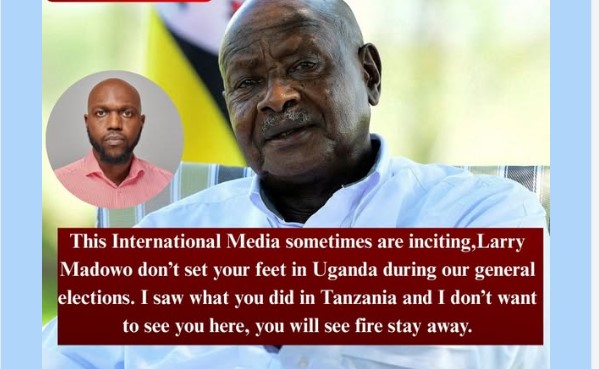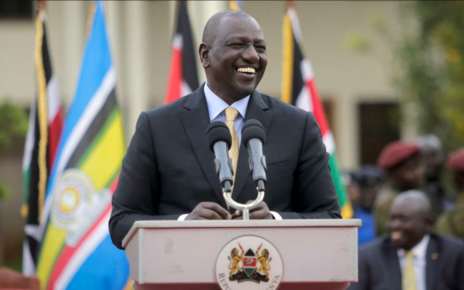A political storm is brewing in East Africa following reports that Uganda’s President Yoweri Museveni issued a stern warning to CNN journalist Larry Madowo over his hard-hitting documentary on human rights violations in Tanzania. The documentary, which sparked international uproar and contributed to widespread calls for sanctions, appears to have rattled several regional leaders.
According to sources familiar with the developing tension, Museveni allegedly accused international media houses—CNN included—of “inciting instability” in African countries by exposing state-linked abuses. In the reported remarks, Museveni is said to have singled out Larry Madowo, cautioning him against entering Uganda during the upcoming general elections.
“This international media sometimes is inciting,” Museveni allegedly warned. “Larry Madowo, don’t set your feet in Uganda during our general elections. I saw what you did in Tanzania, and I don’t want to see you here. You will see fire — stay away.”
The remarks, though not officially confirmed by State House, have gained significant traction online, sparking widespread debate about media freedom, democracy, and the growing tension between African governments and global news outlets. Many observers believe the strong reaction reflects growing discomfort among certain leaders as journalists expose issues around governance, election interference, and human-rights violations.
The CNN Documentary That Shook the Region
Larry Madowo’s investigative feature on Tanzania highlighted testimonies of alleged torture, disappearances, and the use of force during the country’s post-election period. The documentary fueled international criticism, leading the European Parliament to vote overwhelmingly to block funding to Tanzania and to consider sanctions against individuals linked to abuses.
The ripple effects appear to be spreading beyond Tanzania’s borders, with other governments now on high alert ahead of their election cycles.
Media vs. Power: A Growing Rift
Museveni’s reported warning has added fuel to a lingering debate over media freedom in East Africa. Uganda has had a complicated relationship with international journalists during past elections, with several reporters either restricted, deported, or denied accreditation during the 2021 polls.
Analysts say the alleged warning to Madowo—one of Africa’s most prominent global journalists—signals rising tensions as governments attempt to control election narratives. They argue that the backlash is not just about journalism, but about increasing international scrutiny of political systems that are often accused of suppressing dissent.
Public Reaction
Kenyans, Ugandans, Tanzanians, and global followers have flooded social media with mixed reactions:
- Some view Museveni’s remarks as an attack on press freedom.
- Others argue that international outlets often portray African nations unfairly.
- A large group believes the strong reactions show that journalism is having real impact in exposing abuses.
For now, neither Museveni nor Larry Madowo has issued an official statement addressing the reported warning, leaving room for speculation—and heightened regional curiosity.
What This Means for Upcoming Elections
With Uganda’s general elections approaching, the alleged threat underscores the fragile relationship between governments and global media. Observers believe the situation may escalate if international journalists attempt to cover the polls, especially if Madowo chooses to respond or insists on reporting from the ground.
One thing is clear: the tension between power and the press in East Africa is rising, and Larry Madowo’s hard-hitting journalism has once again placed him at the center of a continental discussion on democracy, transparency, and accountability.



